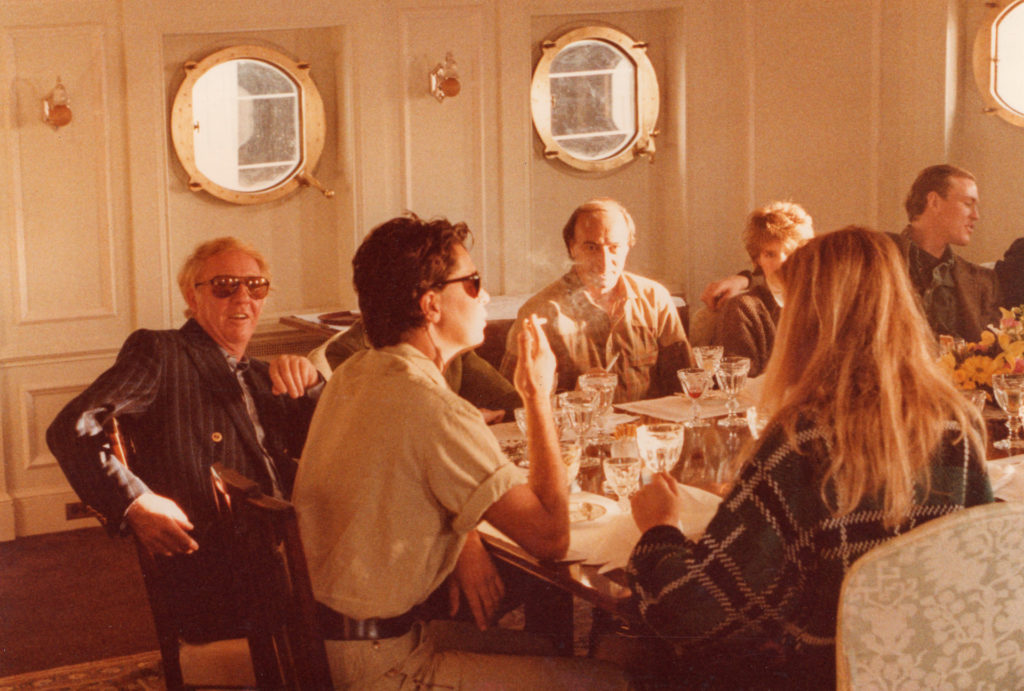Read also:
How to Watch FX Live Without CableHow To Watch AMC Without CableHow to Watch ABC Without CableHow to Watch Paramount Network Without CableEschewing the creative for the business side of film gives the new documentary an interesting niche.
On December 14th, 1977, Paramount released Saturday Night Fever. Bolstered by critical acclaim and a bestselling soundtrack, the story of a working-class Brooklynite blazing through discotheques eventually grossed over $94,000,000 worldwide and brought disco to Middle America.
Over 40 years later, Saturday Night Fever remains a cultural stalwart and is still being referenced, paid homage to, and even parodied to this day. However, throughout production, the movie was met with apathy and sometimes even resistance from Paramount executives. Conventional wisdom, after all, would say a film starring a sitcom actor about a music fad that was already starting to fade was a lousy investment. But its producer Robert Stigwood believed in the Fever and fought tooth and nail to get it to the public. Director John Maggio brings Stigwood’s passion to light in the latest entry of HBO’s MusicBox documentary series, Mr. Saturday Night.
As with any documentary about making a piece of pop culture, the question inevitably arises: does this have anything to offer people who haven’t watched Saturday Night Fever? While fans of Fever will undoubtedly get the most out of the documentary, viewers who aren’t familiar with the property will still find a lot to enjoy about Mr. Saturday Night. This is because the story of Mr. Saturday Night isn’t about Saturday Night Fever itself, but about its producer and the lengths he went to to get his movie made.

Filmmaking is rarely an easy art. The turmoil behind the camera can often be more fascinating than the finished product. Fever had its share of production mishaps. They were run-of-the-mill speedbumps that often go with movie production: rotating directors, harassment from locals, worries about marketability from executives. What makes the production so interesting is Stigwood’s forward out-of-the-box thinking.
Maggio puts Stigwood’s ability to forecast trends and predict hits on center-stage, detailing Stigwood’s producing credits for Tommy and his involvement with turning The Bee Gees into a disco band. That second project becomes integral to the story, as one of Stigwood’s biggest strokes of genius was to tie the soundtrack for Fever to The Bee Gees. By releasing the soundtrack a month before the film’s release, Stigwood used the album’s singles to thrust Fever into the cultural zeitgeist. Using singles to promote film became a surefire marketing strategy in the eighties and nineties, but Stigwood was amongst the strategy’s pioneers.
While fans of [Saturday Night] Fever will undoubtedly get the most out of the documentary, viewers who aren’t familiar with the property will still find a lot to enjoy about Mr. Saturday Night.
A documentary about one producer’s marketing genius may seem like an odd subject matter. Still, Maggio manages to keep the visuals from feeling monotonous with a mix of snappy graphics and archival footage. Then, of course, the thumping beat of disco classics litters Mr. Saturday Night. That mix of visual vibrancy and a four-to-the-floor beats got me excited enough that I wanted to dance around the living room.
But while the soundtrack and visuals bring artistic flair, Mr. Saturday Night is more about the business of art than art itself. Maggio only displays the business side of Stigwood. It’s clear his passion for the project had more to do with the money made than the film.

While the focus on business may kill some artistic romanticism, it’s fascinating to see the sausage being made. Stigwood was able turn a New York Magazine article about the disco subculture into a hit film. While talented filmmakers and musicians obviously accomplished much of that feat, Stigwood’s ability to thrust a niche movie into the middle of pop culture is an admirable skill in its own right.
While Mr. Saturday Night does go into the cultural impact of Saturday Night Fever in its final minutes, the analysis is a little shallow. Disco’s roots are in the Black, Latino, and queer communities, but Fever presented a version of disco centered on white straight men, making it palatable to most of America. Mr. Saturday Night briefly discusses how the movie made disco cool to the mainstream and the subsequent anti-disco backlash. However, outside of the movie’s profits, Maggio doesn’t seem interested in the film’s impact on the broader culture.
Mr. Saturday Night may not be a particularly deep film, but it provides an engaging look at creating a cultural icon. It makes for great watching during a quiet night in or a lazy afternoon. In many ways, it’s like a disco song: energetic, fun, and not particularly intellectual, perfect for a good time.
Mr. Saturday Night hits the dance floor December 9th on HBO.